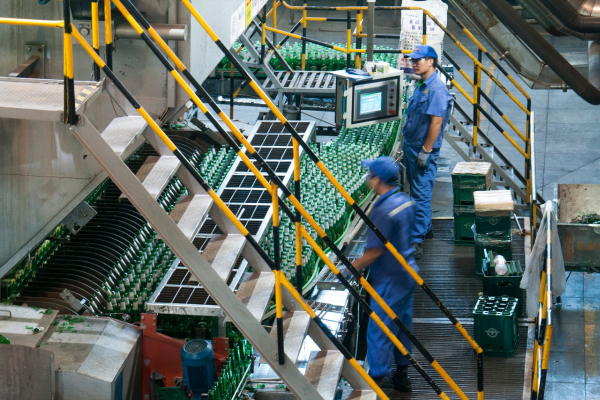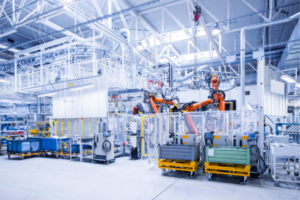What Is an ERP System in Chemical Manufacturing?
Enterprise Resource Planning (ERP) systems are designed to manage the overall business from finance and purchasing to inventory and compliance. In chemical manufacturing, ERP is the backbone that supports:
- Batch and formula management
- GHS and SDS documentation
- Regulatory compliance and audit trails
- Quality management and traceability
- Inventory control and procurement
ERP gives your team the structure and visibility to plan, track, and report across departments. Solutions like Microsoft Dynamics 365 Business Central add chemical-specific capabilities to a widely supported ERP platform.
Read More:
What Is a MES System in Chemical Manufacturing?
A Manufacturing Execution System (MES) focuses on what’s happening on the production floor. It doesn’t replace ERP, but it complements it by handling execution-level tasks such as:
- Real-time production tracking
- Operator instructions and batch documentation
- Machine data capture and sensor integration
- Downtime tracking and OEE (overall equipment effectiveness)
- Electronic batch records (EBR)
In short, while ERP manages what should happen and when, MES manages how it happens—right on the plant floor.
ERP vs MES in Chemical Manufacturing: Key Differences
Understanding the differences between ERP vs MES in chemical manufacturing is critical when deciding where to invest. Here’s a quick comparison:
| Feature | ERP | MES |
|---|---|---|
| Scope | Business-wide | Plant-floor-specific |
| Focus | Planning, compliance, reporting | Execution, performance, monitoring |
| Users | Finance, procurement, QA, leadership | Operators, line supervisors, production staff |
| Real-time production data | Limited | Extensive (machine-level, sensor-driven) |
| Regulatory & documentation | Strong (SDS, GHS, REACH, OSHA support) | Minimal or none |
| Inventory control | End-to-end visibility and lot tracking | Shop floor materials usage only |
| Quality management | Audit trails, hold/release, QC workflows | In-process checks, operator sign-offs |
Do You Need Both ERP and MES in Chemical Manufacturing?
Whether or not you need both depends on your size, complexity, and operational goals. Here are a few scenarios to help decide:
When ERP alone may be enough:
- Small to mid-sized chemical manufacturers
- Batch production with manual processes
- Focus on compliance, traceability, and inventory visibility
- Strong ERP (like Alchemy 365 on Business Central) that handles QA, batch, and documentation well
When MES adds real value:
- Automated or continuous processing plants
- Heavy use of machines, sensors, or lab equipment
- Need for electronic batch records and production-level data
- FDA or ISO compliance that requires timestamped, granular reporting
In many cases, manufacturers start with ERP and add MES capabilities as operations mature.
How ERP and MES Work Together in Chemical Manufacturing
ERP and MES don’t replace each other—they complement one another. A typical workflow might look like:
- ERP schedules a batch based on demand, inventory, and formulation
- MES receives the production order and guides the operator through the process
- MES captures production data and sends performance feedback to the ERP
- ERP uses that data for cost analysis, traceability, and future planning
If both systems are integrated properly, you gain complete visibility from order to shipment, including real-time insights from the plant floor.
Solutions like Alchemy 365 can integrate with data collection tools on the production floor, helping bridge the gap without adding excessive complexity.
ERP vs MES in Chemical Manufacturing Isn’t Either-Or
When it comes to ERP vs MES in chemical manufacturing, it’s not about choosing one or the other—it’s about understanding what each system offers and deciding what fits your current and future needs.
Start with an ERP that supports your core operations, compliance, and planning. If real-time production monitoring, machine data, and electronic batch records become essential, an MES may be the logical next step.
Want help evaluating how ERP and MES could fit together for your operation? Contact Alchemy 365 for a tailored assessment that fits your plant’s needs and growth goals.






